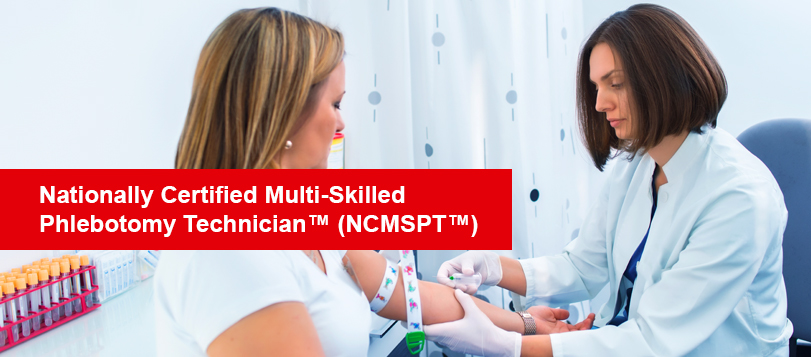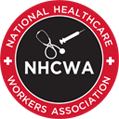
Certified Phlebotomy Technicians (CPTs) are trained to obtain blood samples from patients for testing and other medical reasons. Their duties and responsibilities center on evaluating patients to determine whether they are fit to have blood drawn, drawing blood, handling samples properly, and cataloging them correctly for lab analysis. Phlebotomists who conduct home care visits are also responsible for safely transporting blood samples between the sample site and the laboratory.
Other important tasks that phlebotomists must perform include:
- Performing basic blood tests and other point of care testing.
- Preparing blood samples and other bodily fluid specimens for further analysis by attending medical professionals.
Phlebotomists who work in a laboratory environment have the added task of ensuring that samples are correctly analyzed. This includes enforcing quality control and safety measures to prevent the contamination of the samples during analysis.
What Does it Mean to be a Certified Multi-Skilled Phlebotomy Technician?
By definition, a certified multi-skilled Phlebotomy Technician ™(NCMSPT™) is any Phlebotomist or Phlebotomy Technician that has received and has met the certification requirements set by the National Healthcare Workers Association(NHCWA®). A Certified Multi-Skilled Phlebotomist can perform a variety of clinical procedures as well as administrative duties. Clinical tasks performed by multi-skilled phlebotomy technicians can vary according to the laws in each state.
Where Does a Phlebotomy Technician Work?
Phlebotomists can find work in various healthcare settings. This includes hospitals, blood banks, nursing homes, private practices or other medical facilities where their skills are needed. In order to reduce the impact of liability, many facilities require phlebotomists to be certified before they are hired. Certification can be obtained by passing an approved vocational program. Vocational programs for phlebotomists are offered at many technical schools and community colleges.
The Importance of Certification
NHCWA Certification allows healthcare workers and employers to validate their knowledge and abilities and the mastery of industry-specific skills. Achieving certification helps healthcare organizations demonstrate that their business is run effectively by qualified staff. Meanwhile, recertification reflects a commitment to ongoing learning and improvements. Additionally, organizations that are NHCWA certified can successfully demonstrate to patients, employees and other companies that they use industry-respected best practices.
NHCWA Certification Benefits Patients and Families: NHCWA Certification provides validation that a medical organization and its employees have demonstrated the necessary knowledge and skills to meet the complex requirements of the healthcare industry. This ensures high quality care delivery, which can give patients and families peace of mind.
NHCWA Certification Benefits Healthcare Professionals: In order to become certified, healthcare professionals must validate their industry-specific knowledge and skills. Passing the certification process allows them to position themselves for appropriate recognition, and it can give them a critical sense of confidence and achievement.
NHCWA Certification Benefits Employers: Certification is a vehicle for hospitals to distinguish themselves from competitors. It demonstrates to consumers that the organization attracts only the most skilled and experienced healthcare workers. Achieving NHCWA certification (and meeting the continuing education requirements necessary to maintain it) also contributes to an environment of professionalism and a culture of employee retention. This is especially critical given the severe shortage of qualified healthcare workers.
Certification/Licensing: Each individual state decides licensing requirements for Phlebotomy Technicians, but most states do not at this time.
Check the state’s requirements if you live in California or Louisiana before you register for the phlebotomy Exam.
California and Louisiana requires all Phlebotomy Technicians to be certified and to have a state license.
NHCWA Phlebotomy Certification Requirements:
One of these requirements must be met:
- Graduation from an allied health vocational training program
- One year of work experience in the field
- Military experience/training in the field
- Reciprocity from another certifying agency
NHCWA Certification Requirements for Phlebotomy Certification:
The following skills requirements are mandatory and must be met for NHCWA certification: The NHCWA requires CPR certification for all medical professionals applying for NHCWA certification.
- Current CPR certification
- A minimum of 25 successful venipuncture’s
- A Minimum of 10 successful Skin puncture’s
(In addition check your states requirements for minimum venipuncture Sticks some states require an average of 30 venipuncture Sticks)
Click here to register
Click here to renew your certification
Click here to visit NHCWA self-service portal
Click here TO VERIFY CERTIFICATION
